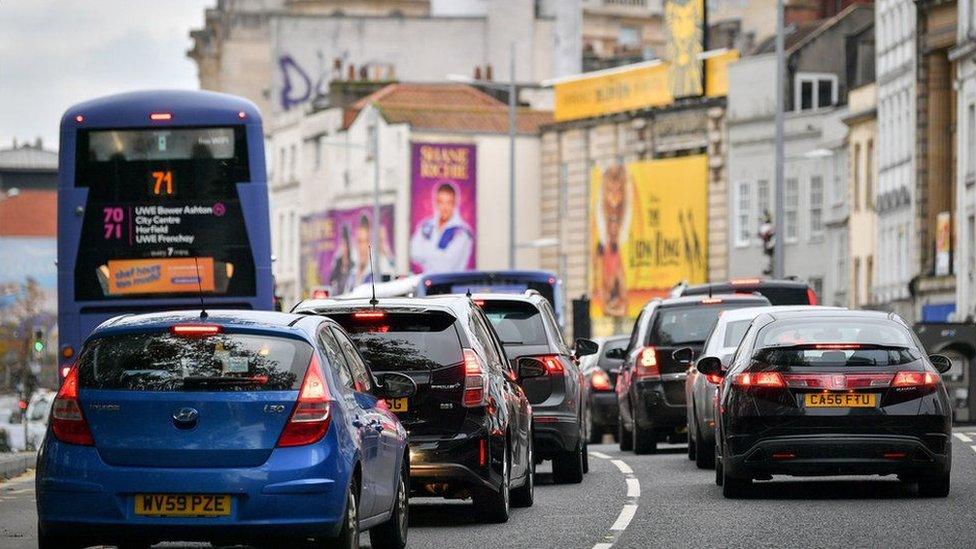Bristol Clean Air Zone launches for some of the most polluting cars
- Published
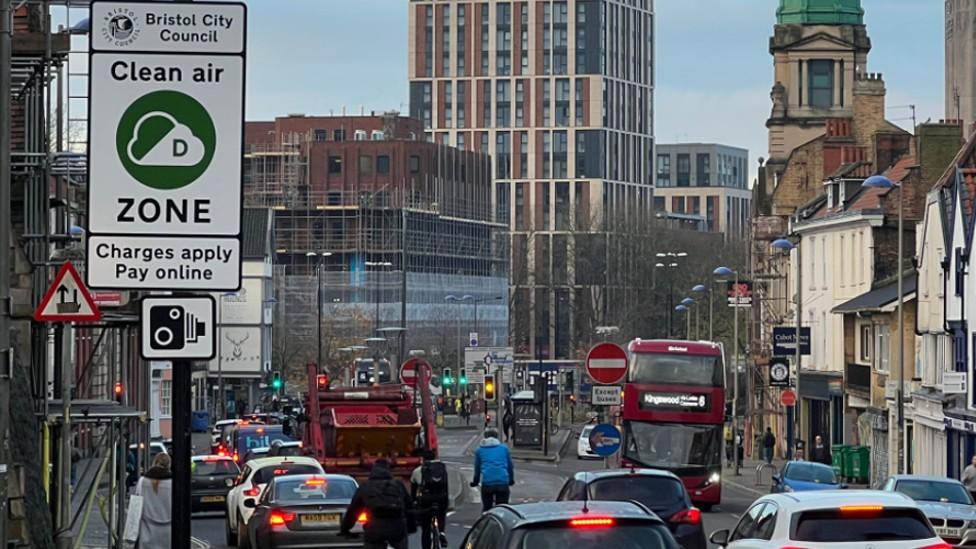
The Clean Air Zone came into force at 00:00 on 28 November
Bristol's Clean Air Zone has launched after becoming operational just after midnight.
Drivers of some of the most polluting vehicles will now face a daily charge of £9 to enter the city centre.
The move has been welcomed by health and environmental campaigners, but some businesses owners are concerned it will hit trade.
Bristol mayor, Marvin Rees, said: "What an incredible milestone we've achieved today."
It is hoped the Clean Air Zone (CAZ), which covers a central area of the city and part of the Portway, will reduce air pollution in the city.
No vehicles are banned from entering the CAZ, but older and more polluting vehicles are being charged.
This is £9 for private cars, taxis and light goods vehicles and £100 for heavy goods vehicles, buses and coaches.
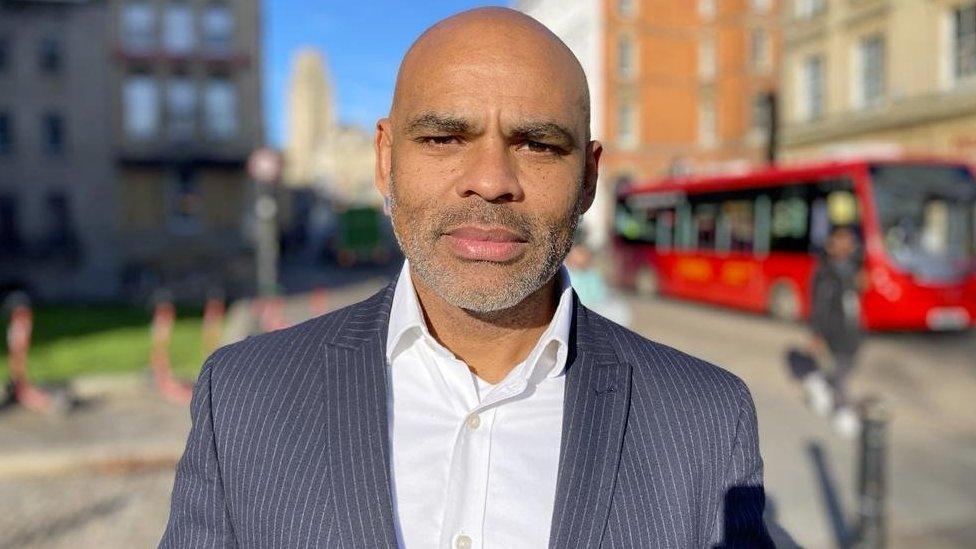
Mayor Marvin Rees said the zone starting was an "incredible milestone"
Bristol City Council estimates about 70% of vehicles will not be charged.
Carla Denyer, a Bristol City councillor and co-leader of the Green Party, said the move had "certainly been a long-time coming".
"It is so important that we tackle the air pollution in Bristol," she added.
She said it was estimated that some 300 lives were cut short every year in Bristol because of pollution, and it also affected children's brain development.
Bristol City Council said people will not receive written notification or any kind of alert that they have entered the CAZ or that a payment is due, rather individuals and businesses are "fully responsible for managing this".
Mr Rees said that the CAZ will "help create a city that is healthier for everyone to grow up, live and work in".
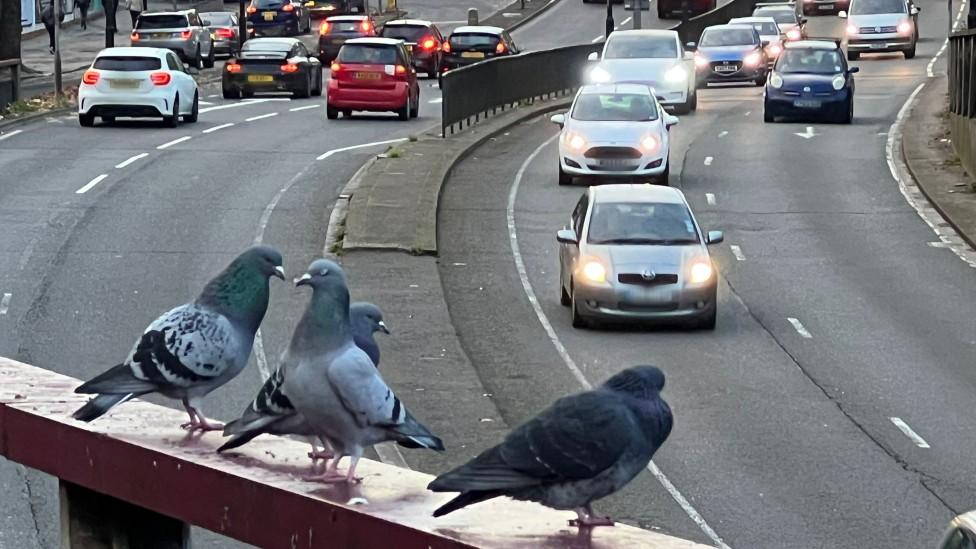
Certain vehicles will be charged for entering the zone
He added that the council is "mindful of the financial strain people are under at the moment" and that it has taken its "time to find a way to clean up our air, while also providing support to those who need it most".
Temporary exemptions and financial support are available, he added.
Daily charges apply 24 hours a day, seven days a week, all year round, and must be paid within six days of travel.
Failure to pay the daily charge will result in a full Penalty Charge Notice of £120, or £60 if paid within 14 days, as well as the outstanding daily charge.
Dr Jo Barnes, an associate professor of clean air at the University of the West of England, said if the zone was successful "there will be less pollution".
"Even though you can't see it, air pollution is affecting your health and those members of your family," she told BBC Radio Bristol.
"So when you are annoyed about the Clean Air Zone - think about the public health impact that this is going to have."

BBC Radio Bristol's Pete Simson at the edge of the Clean Air Zone
I spent the morning at the Three Lamps Junction, where two major arterial routes converge and which now also signifies one of the boundary lines where the zone starts.
It may have been coincidence but traffic seemed noticeably quieter than normal as rush hour progressed.
For those walking into the city centre, the general feeling was that new measures which help to improve air quality should be welcomed, however there are still many concerns.
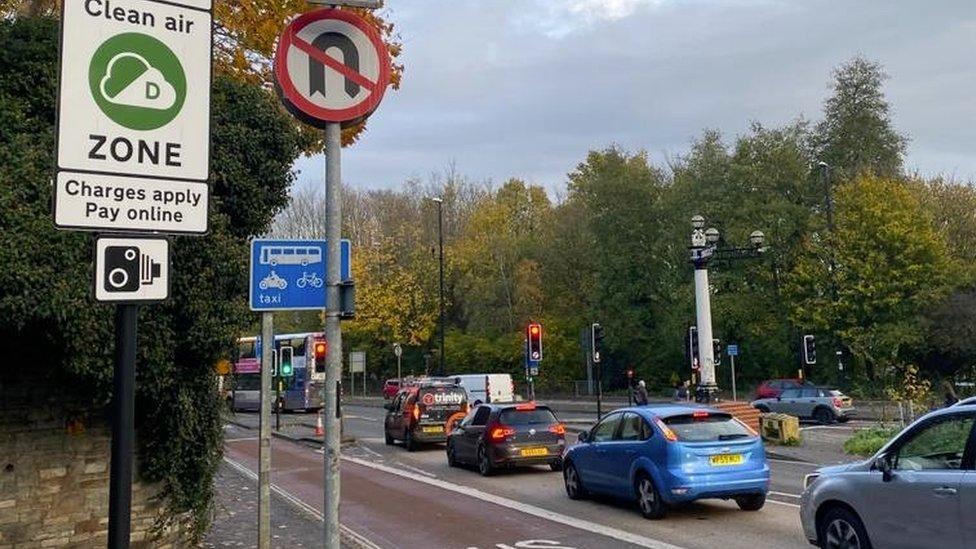
One entry point to the Clean Air Zone is the Three Lamps junction
It's clearly a terrible time to be asking people to pay extra charges if they drive an older vehicle, but it's not a great time to be encouraging people to use alternative transport either - especially the city's failing bus network.
Meanwhile it's estimated that more than 70% of vehicles won't be affected by the charge, many doubt how effective it will be.
Ultimately though, this is a policy designed to reduce dangerous levels of air pollution, for which vehicle emissions are largely responsible.
As the zone was about to go live Bristol resident Leanda Morrison, who has asthma said: "It might wake people up to realising what the air is like that they're breathing in Bristol.
"We've built a society that hasn't cared about the impact of our actions on the environment."
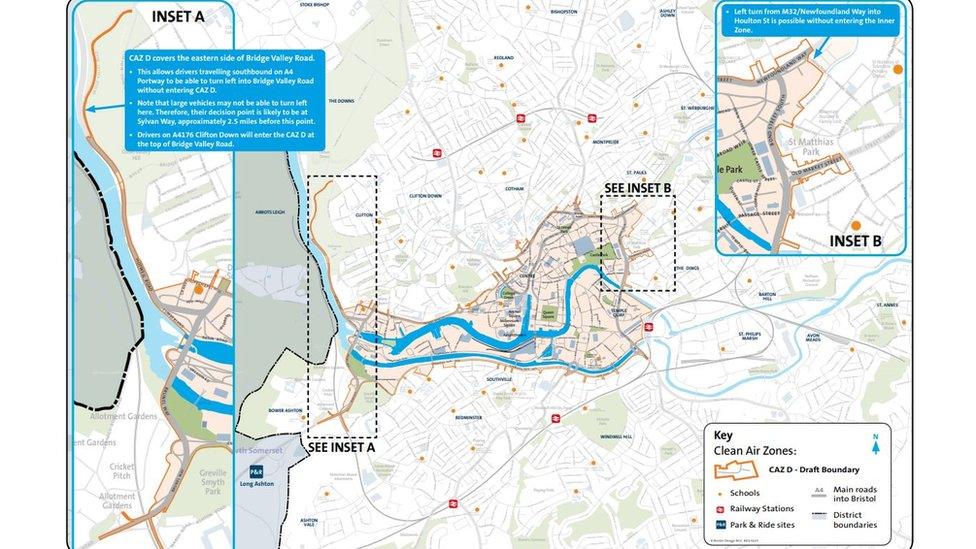
The zone covers a central area of the city and part of the Portway

Follow BBC West on Facebook, external, Twitter, external and Instagram, external. Send your story ideas to: bristol@bbc.co.uk , external
Related topics
- Published21 November 2022
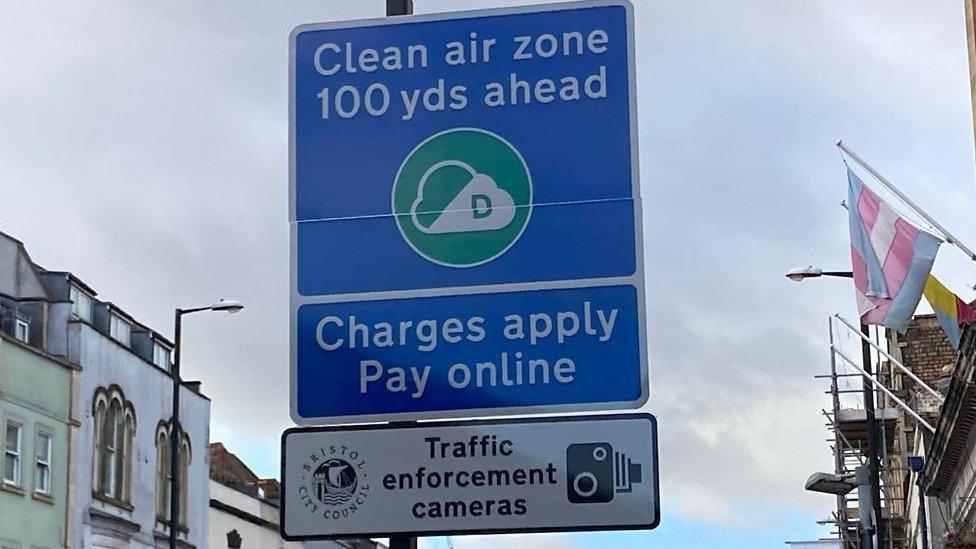
- Published14 November 2022
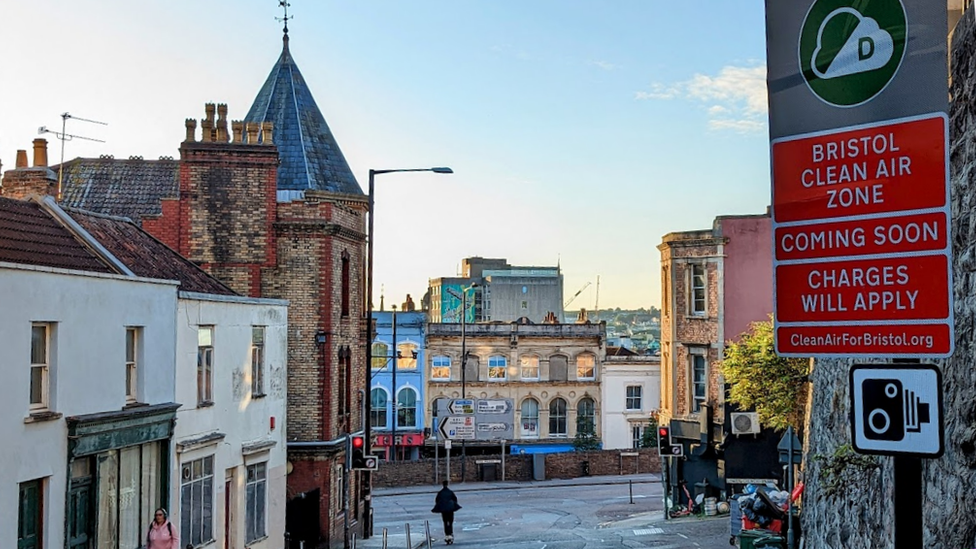
- Published19 October 2022
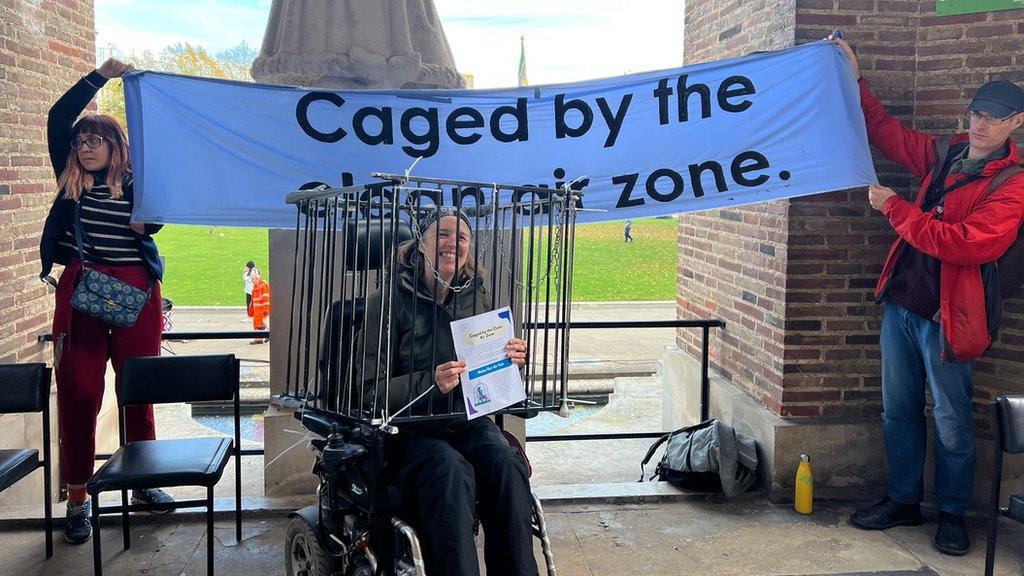
- Published1 September 2022
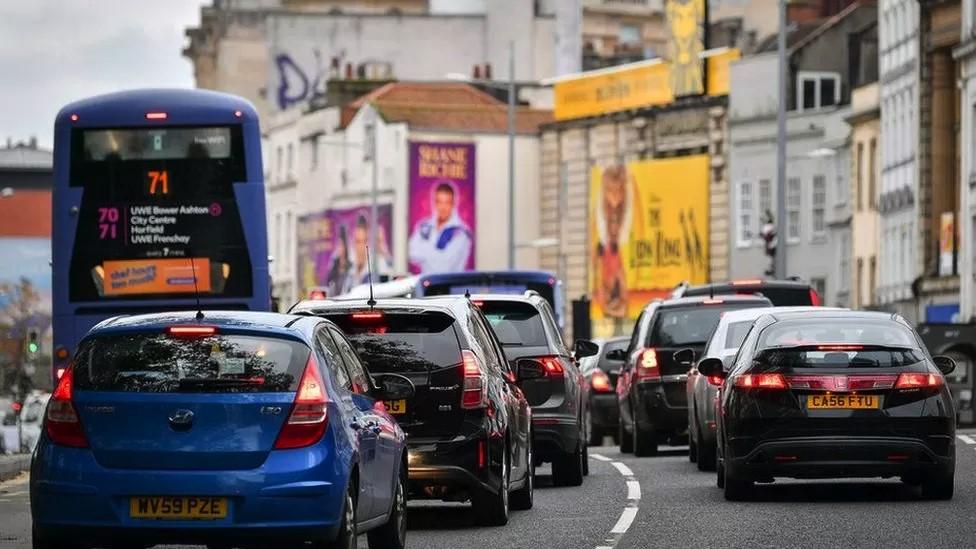
- Published6 July 2022
